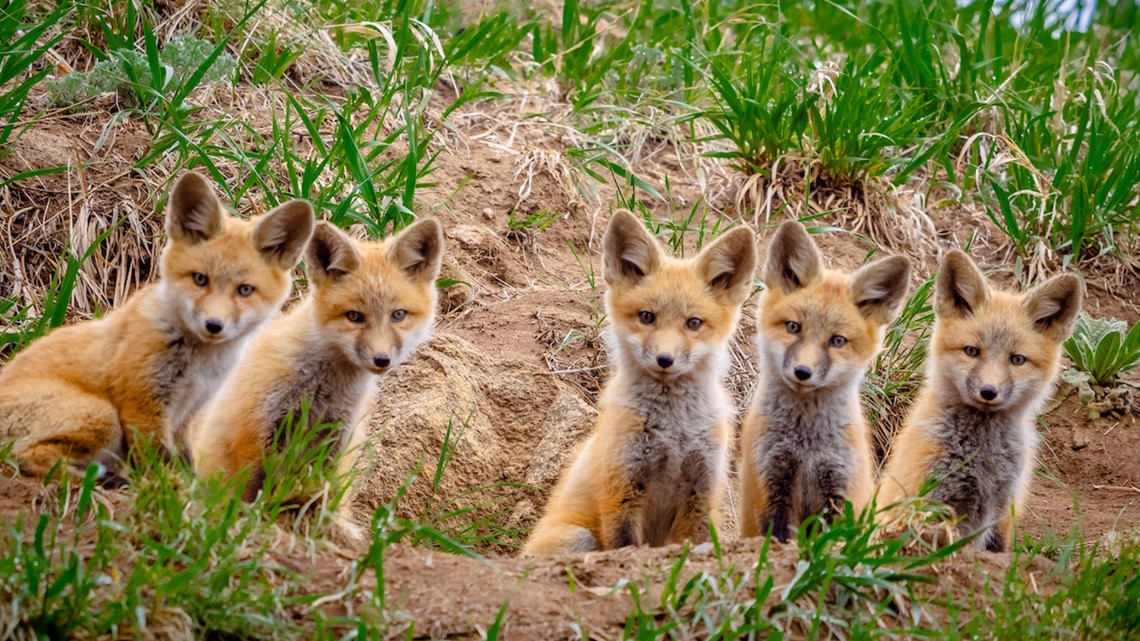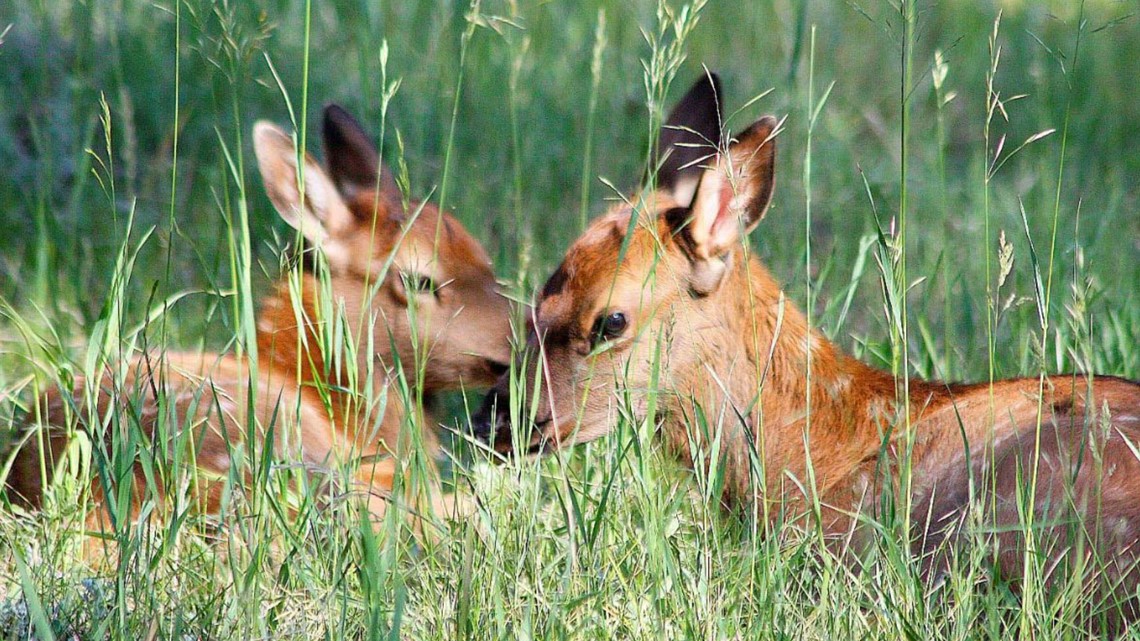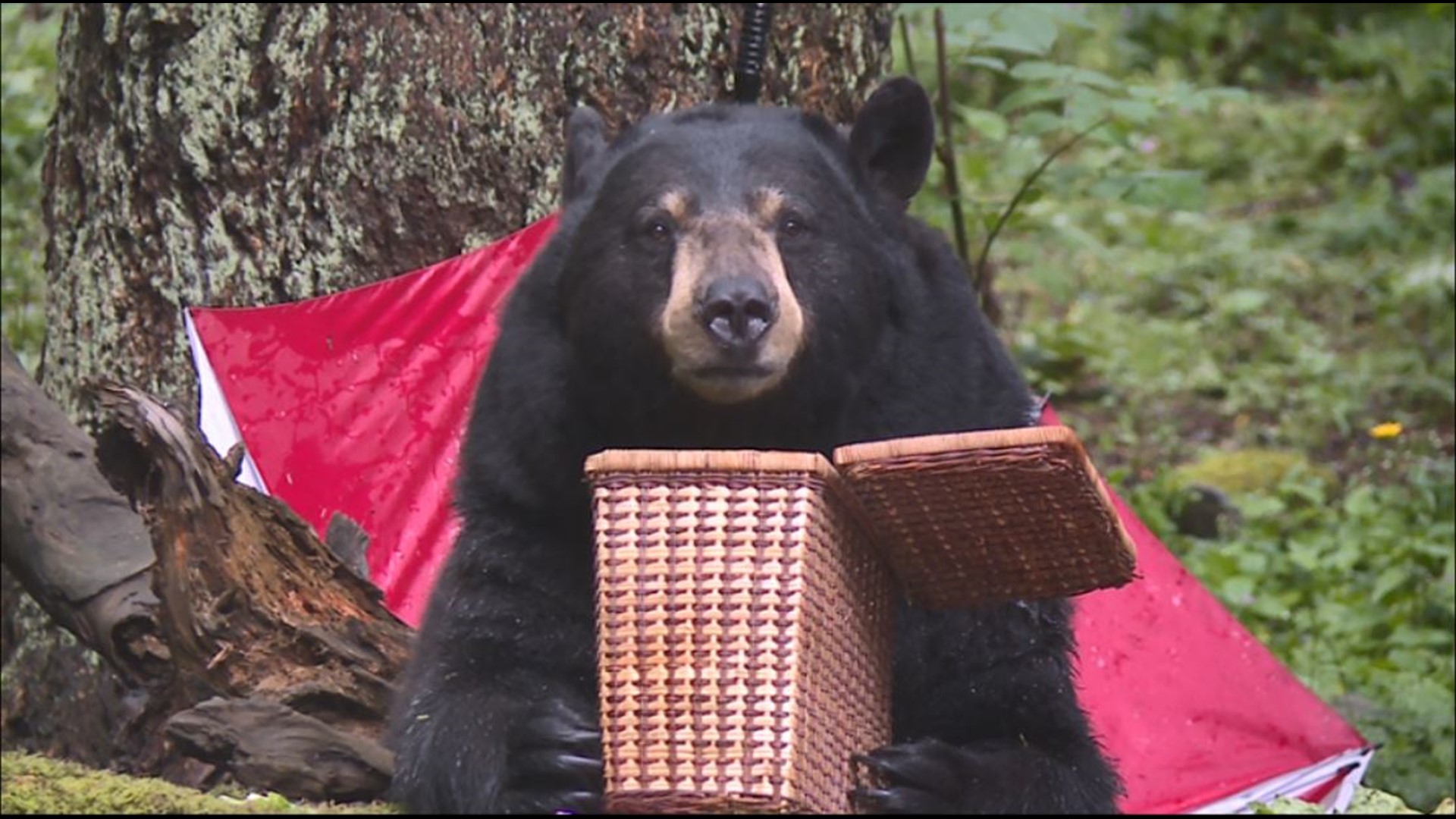DENVER — Spring has sprung and Colorado's wildlife is experiencing new life and growth as well.
Colorado Parks and Wildlife (CPW) said bears are coming out of their winter dens to find food and the next generation of young wildlife is being born.
CPW said every spring it receives an increase in office visits and calls from people that report they "rescued" young wildlife.
Many people wrongly believe they are "helping" young animals by picking them up, bringing them to a CPW office or even taking them home to feed them. However, these people routinely orphan young wildlife by essentially kidnapping them from their natural environment.
CPW said the best practice is to leave young wildlife untouched in their natural habitat so they can grow and thrive in the wild.
"If you see a newborn fawn without its mother nearby, that is normal,” said CPW Area Wildlife Manager Jason Duetsch. "Deer, elk and pronghorn mothers hide their young for long periods of time while foraging."
"Young that have been removed cannot be successfully returned to the wild, as the mother will not continue searching for a missing baby or reject it because it was handled by humans and may no longer smell like her fawn," Duetsch said. "We have a human responsibility to keep wild animals wild and leave young wildlife alone to support their natural growth in the wilderness."
CPW also urges the public to refrain from feeding wildlife on trails, in backyards or on decks.
How can humans help young wildlife?
- Do not approach, touch or feed wild animals.
- Enjoy wildlife from a safe distance.
- Keep your dog on a leash on trails.
- If you find a wild animal that appears sick or injured, leave it alone. Call your local CPW office and consult a trained wildlife officer for guidance.


"Wildlife will be exhibiting normal protective behavior of their young," said Duetsch. "Give wildlife extra space this time of year. Be sure to keep dogs on leashes. Dogs can trigger aggressive behavior and both moose and elk will chase a dog right back to their owner, presenting a dangerous situation."
What should you do if you see a baby bird out of a nest?
CPW also said baby birds are picked up by people, but the animal’s best chance of survival is to be raised by its parents.
If a nestling baby bird (eyes closed and featherless) has fallen from a nest that you can easily see and safely reach, CPW said its OK to put that bird back into the nest — but wear gloves and a mask to prevent transmission of diseases between you and the bird.
If you find a fledgling bird (eyes open, feathered, can hop around but cannot fly) on the ground, do not pick up that bird. According to CPW, the parents will continue to care for it on the ground and it will soon be able to fly.
If you find a sick or dead bird, do not touch the bird and contact CPW to report it.
Also, it's good to keep cats inside to prevent them from killing birds.
SUGGESTED VIDEOS: Animals and Wildlife
> Top stories curated daily just for you! Sign up for the 9NEWSLETTER to get can’t-miss stories, Next and Broncos content, weather and more delivered right to your inbox.
MORE WAYS TO GET 9NEWS
Subscribe to our daily 9NEWSLETTER
Download the 9NEWS APP
iTunes: http://on9news.tv/itunes
Google Play: http://on9news.tv/1lWnC5n
HOW TO ADD THE 9NEWS APP TO YOUR STREAMING DEVICE
ROKU: add the channel from the ROKU store or by searching for KUSA.
For both Apple TV and Fire TV, search for "9news" to find the free app to add to your account. Another option for Fire TV is to have the app delivered directly to your Fire TV through Amazon.



